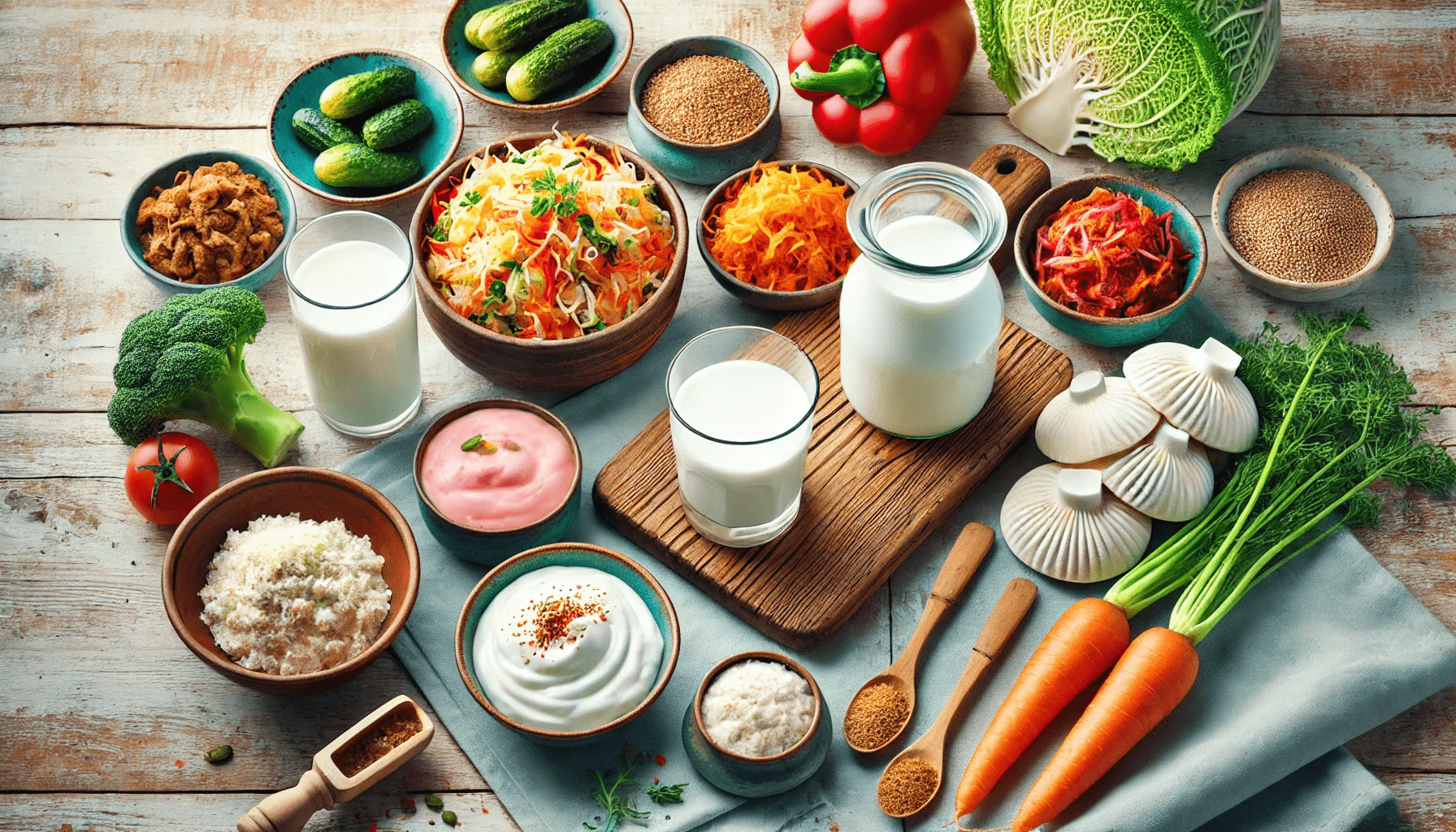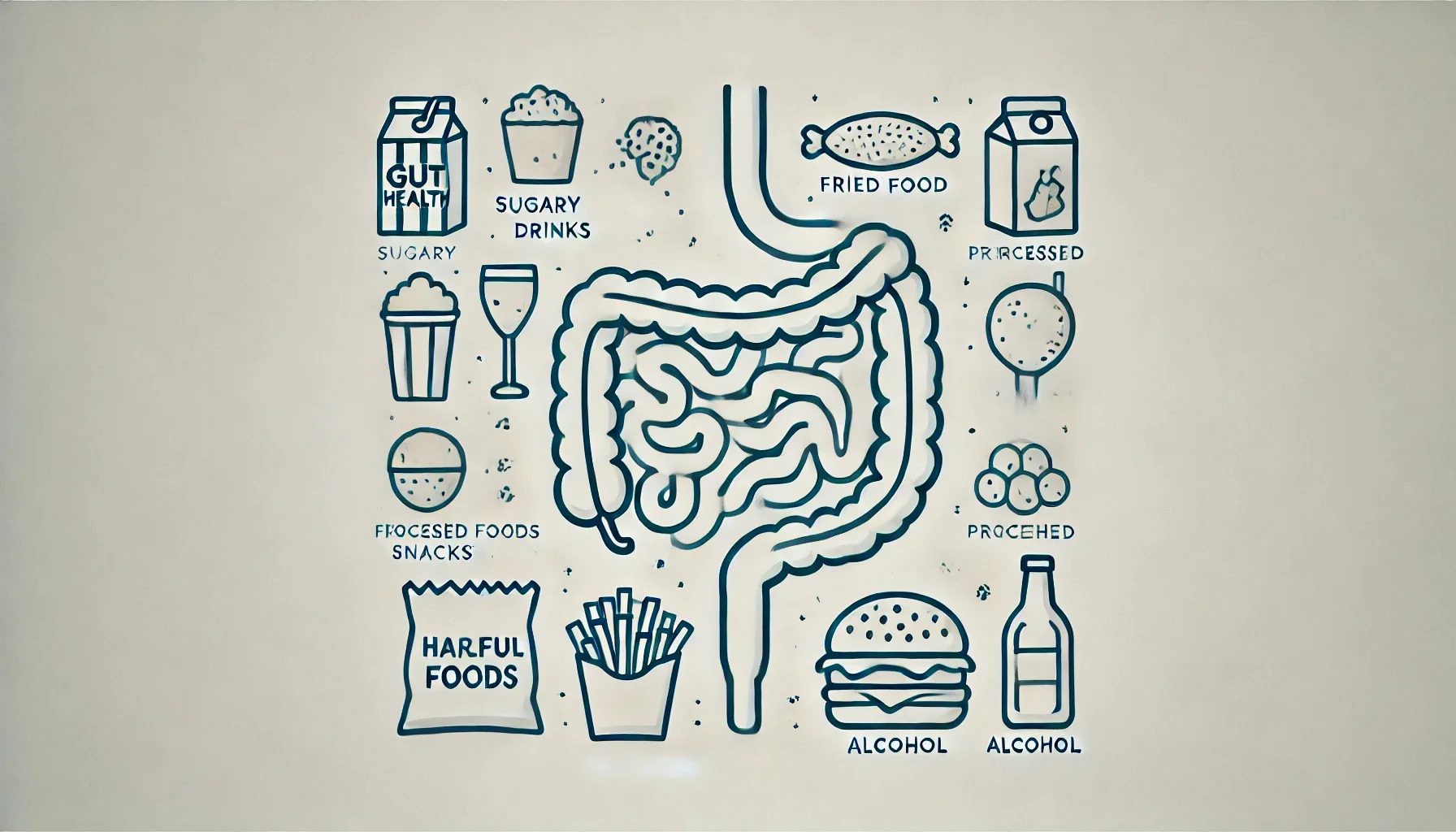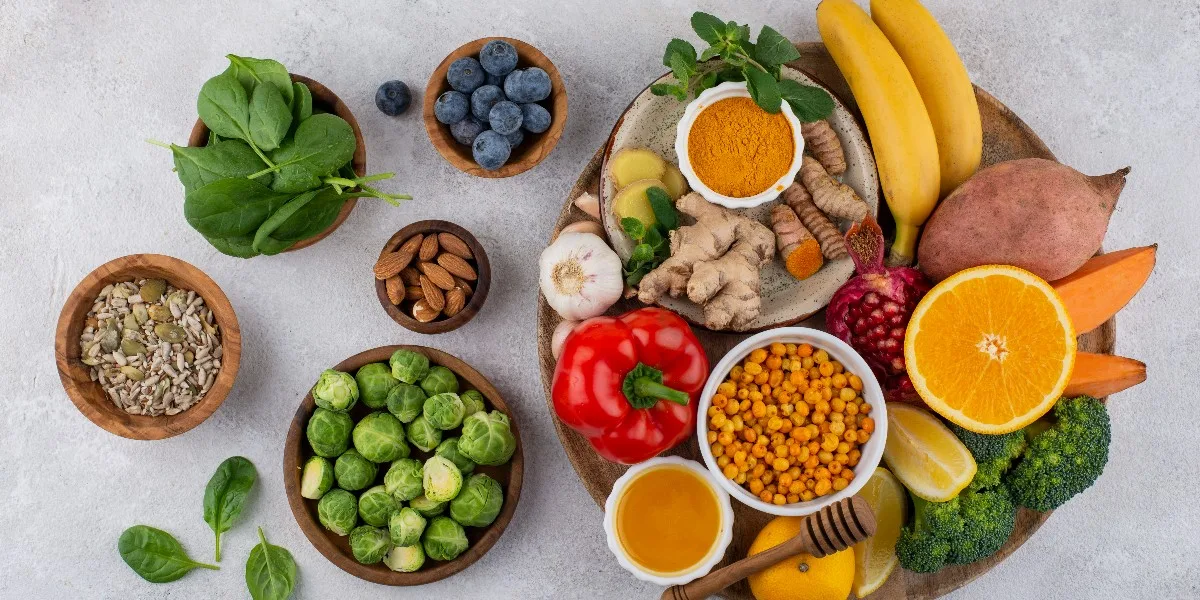Maintaining a healthy gut is essential for your overall well-being. The gut microbiome, made up of trillions of bacteria, plays a key role in digestion, immunity, and even mental health. One of the most effective ways to promote a healthy gut is by consuming fermented foods, which are rich in probiotics. These probiotics help balance your gut bacteria, supporting better digestion and nutrient absorption. Let’s explore the top fermented foods that can help boost your gut microbiome.
1. Yogurt
Yogurt is one of the most well-known fermented foods, packed with live cultures of beneficial bacteria, primarily Lactobacillus. These probiotics are excellent for gut health as they help restore the balance of good bacteria in your digestive tract. Consuming yogurt regularly can improve digestion and enhance immune function. It’s important to choose plain, unsweetened yogurt to avoid added sugars, which can disrupt the gut microbiome. In India, dahi or homemade curd is a staple in many households, making it a readily accessible probiotic source.
2. Kefir
Kefir, a fermented milk drink, is similar to yogurt but contains a wider variety of probiotic strains, including Lactobacillus and Bifidobacterium. This makes kefir more potent in boosting gut health. Its thinner consistency makes it easier to drink, and it can be consumed on its own or added to smoothies. Although not as common in India, kefir is gaining popularity due to its powerful probiotic content and versatility in the kitchen.
3. Sauerkraut
Sauerkraut is fermented cabbage that’s loaded with probiotics and fiber, making it an excellent addition to your diet for better digestive health. Sauerkraut helps promote healthy digestion and increases the absorption of vitamins and minerals. While it is more common in Western diets, sauerkraut can easily be added to salads or sandwiches. Look for unpasteurized versions to ensure it contains live cultures.
4. Kimchi
Kimchi is a traditional Korean fermented vegetable dish, often made with cabbage and radishes. Rich in fiber, vitamins, and probiotics, kimchi is beneficial for gut health. The fermentation process produces beneficial bacteria like Lactobacillus that aid in digestion and boost immunity. While kimchi may not be readily available everywhere in India, you can find it in specialty stores or make a homemade version using local vegetables.
5. Idli and Dosa Batter
Idli and dosa, staples in South Indian cuisine, are made from fermented rice and lentil batter. The fermentation process enhances the nutritional profile of the batter, making it rich in beneficial bacteria that support gut health. The lactic acid bacteria formed during fermentation help in easier digestion and nutrient absorption. Including idli and dosa in your breakfast routine is a delicious and nutritious way to introduce probiotics into your diet.
6. Miso
Miso is a fermented soybean paste commonly used in Japanese cooking. It’s rich in probiotics, specifically beneficial strains like Lactobacillus, which help balance the gut microbiome. Miso can be used to make soups, marinades, or dressings. Although it’s not a traditional Indian ingredient, miso can easily be incorporated into Indian dishes, adding both flavor and health benefits.
7. Pickles (Achar)
Traditional Indian pickles, or achar, are often made through a fermentation process that can yield probiotic benefits. However, it’s important to note that not all pickles are fermented—many are simply preserved with oil, salt, or vinegar. Fermented pickles contain live cultures that are beneficial for gut health, but it’s essential to consume them in moderation due to their high salt content.
8. Kombucha
Kombucha is a fermented tea that’s rich in probiotics and antioxidants. It’s made by fermenting tea with sugar and a symbiotic culture of bacteria and yeast (SCOBY). Kombucha helps support digestion, detoxification, and overall gut health. Although kombucha is still relatively new in India, it is gaining popularity, and you can find it in health food stores or make your own at home.
9. Tempeh
Tempeh is a fermented soybean product similar to tofu, but with more probiotics. Tempeh contains beneficial bacteria that support a healthy gut microbiome and is also rich in protein and fiber, making it a nutritious option for vegetarians. While tempeh is more commonly found in Southeast Asian cuisine, it can be used as a substitute for paneer or added to curries in Indian meals.
Benefits of Fermented Foods for Gut Health
Fermented foods are not only rich in probiotics but also help reduce inflammation and improve digestion. Probiotics promote the growth of beneficial bacteria in the gut, which enhances immune function and aids in nutrient absorption. Fermented foods are particularly beneficial for people suffering from digestive issues like irritable bowel syndrome (IBS) or bloating, as they help regulate bowel movements and reduce discomfort.
Tips for Including Fermented Foods in Your Diet
- Start Slowly: If you’re new to fermented foods, introduce them gradually to avoid digestive discomfort.
- Mix It Up: Include a variety of fermented foods in your diet, from yogurt and idli to kombucha and sauerkraut, to ensure you get a wide range of probiotics.
- Balance is Key: While fermented foods are beneficial, balance them with a healthy diet rich in fiber, fruits, and vegetables.
Final Thoughts
Fermented foods are a simple and natural way to support your gut health. From yogurt and kefir to traditional Indian foods like idli and dosa, there are plenty of options to choose from. By incorporating these probiotic-rich foods into your diet, you can help maintain a healthy gut microbiome, which is essential for digestion, immunity, and overall well-being.
Read more : Foods to Avoid for a Healthy Gut: What’s Harming Your Microbiome?
Medical Disclaimer: This article is for informational purposes only and is not a substitute for professional medical advice. Always consult with a healthcare provider for personalized recommendations.







